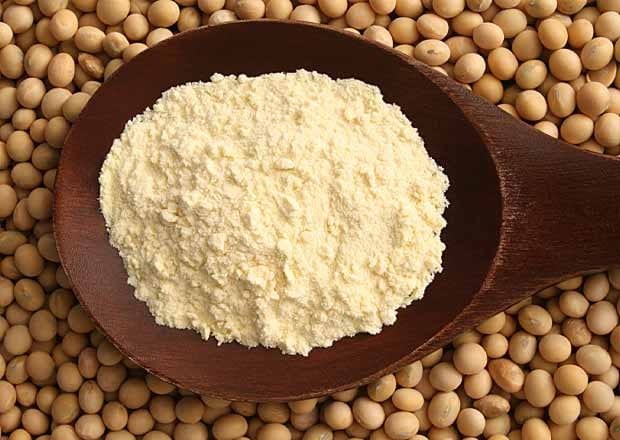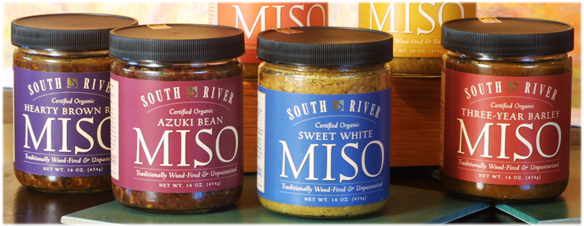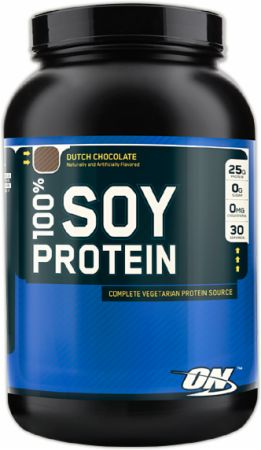Your supermarket has a whole shelf devoted to it. One or two ex-girlfriends lived on nothing but it. Even the lists of ingredients on your favorite foods have been slowly infiltrated by it.
Is the soy craze for real, or just another passing health fad?
As it turns out, soy may be the single most beneficial food product, promising the healthy maintenance of the heart, bones, prostate, and immune system. Read on to find out what this magic bean is all about.
What is soy?
Soy is the name for anything made from the soybean, a grain native to Asia, but whose world production is led by the United States. A versatile bean, it can be processed into an impressive assortment of different foodstuffs and oils.
Soy is a complete protein, meaning it contains all essential amino acids that the body needs. It offers the same protein content as meat, minus the fat and cholesterol.
Is soy good for you?
Besides having a complete protein profile, soy has no artery-wrecking cholesterol and whatever little fat it has, it’s the unsaturated, healthier kind.
But that’s not all. Soy has been scientifically proven to have all kinds of health benefits. Here’s a breakdown of them:
Soy reduces risk of heart disease
While the exact science of it is not understood yet, substituting animal products with soy products can reduce cholesterol levels: 25 grams of soy protein not only lowers low-density lipoproteins, the “bad” cholesterol, it may also raise the high density, “good” variety. In 1999, the U.S. Food and Drug Administration supported this claim and allowed food labels to promote soy as part of a heart healthy diet.
Soy helps prevent prostate cancer
In over 40 studies, soy has promoted healthy prostate function. Soy is rich in isoflavanones, a poorly understood, but markedly effective antioxidant. Soy protein has also been shown to inhibit the enzymes that stimulate prostate cell growth. The low cancer rates in Asian men have been partly attributed to soy consumption.
Soy promotes healthy bones
Statistical studies in Asia found that soy prevents the loss of bone tissue in postmenopausal women, reducing osteoporosis. But men can also profit from soy, since it keeps bones strong and resistant to mineral loss. It has also been associated with decreased arthritis.
Soy helps maintain colon health
Colon cancer is one of the most common causes of death involving the digestive tract. While no scientific study offers definitive claims that soy prevents colon cancer, it plays a part in keeping general digestive tract health, which includes the colon. A study with colon cancer survivors found that soy intake reduced the cancer’s proliferation.
Soy boosts the immune system
Soy is rich in a class of natural detergents called saponins. These little super cleaners bind to cholesterol in the intestine, preventing its absorption. But beside the aforementioned cholesterol-lowering power, saponins ward off microbes, making them great accessories to the immune system.
Soy may assist in diabetes & is easy on the kidneys
Diabetics have high blood glucose levels because their cells don’t recognize insulin, the hormone that tells their bodies to absorb glucose. Diabetics who eat soy have lower blood glucose levels than normal, partly due to soy’s hearty fiber content. And since diabetes is linked with kidney problems, soy, coincidently, is easy on the kidneys.
Soy foods
Soy milk:

made from ground soybeans, water and sweetener, it’s creamy with a distinct nutty flavor. It’s a great substitute for milk for those with lactose intolerance.

made from ground soybeans, water and sweetener, it’s creamy with a distinct nutty flavor. It’s a great substitute for milk for those with lactose intolerance.
Soy flour:

The milled toasted soybean becomes a flour that can make as many baked goods as regular wheat flour.

The milled toasted soybean becomes a flour that can make as many baked goods as regular wheat flour.
Miso (soy paste):

Popular in Japanese soups, this salty paste has a great flavor and high concentration of protein.

Popular in Japanese soups, this salty paste has a great flavor and high concentration of protein.
Soybean sprouts:

Like alfalfa sprouts, it’s used to give an airy texture to salads.

Like alfalfa sprouts, it’s used to give an airy texture to salads.
Soy burgers & hot dogs:

For nouveau vegetarians, or health nuts who still like grilled food in a bun, soy can be compressed into patties and wieners.

For nouveau vegetarians, or health nuts who still like grilled food in a bun, soy can be compressed into patties and wieners.
Tofu:

It’s the cheese of soy milk, the most common meat substitute used in Asian cooking for centuries. It has a very mild, almost invisible flavor, but it absorbs the taste of other ingredients.

It’s the cheese of soy milk, the most common meat substitute used in Asian cooking for centuries. It has a very mild, almost invisible flavor, but it absorbs the taste of other ingredients.
Soy nuts:

A good snack, like peanuts, but much less fatty. They’re great in salads and baked goods.

A good snack, like peanuts, but much less fatty. They’re great in salads and baked goods.
Soybeans:

In its natural form, soy is not commonly used, but can be cooked like normal beans.

In its natural form, soy is not commonly used, but can be cooked like normal beans.
Tempeh:

These are chunky fermented soy cakes form Indonesia — also a good meat substitute.

These are chunky fermented soy cakes form Indonesia — also a good meat substitute.
Textured soy protein:

The soy protein, isolated and dehydrated, becomes textured soy protein. It’s commonly used to make veggie burgers, hot dogs, sausages, cold cuts, and nuggets, and often sold hydrated and frozen to resemble ground beef.

The soy protein, isolated and dehydrated, becomes textured soy protein. It’s commonly used to make veggie burgers, hot dogs, sausages, cold cuts, and nuggets, and often sold hydrated and frozen to resemble ground beef.
Soy supplements, shakes, pills & protein bars:

For those on the run, soy protein has been placed in supplements, shakes, and candy bars. While the protein is there, many other essential nutrients aren’t.

For those on the run, soy protein has been placed in supplements, shakes, and candy bars. While the protein is there, many other essential nutrients aren’t.
How much?
For all the touted benefits of soy to kick in, the FDA recommends at least 25 grams of soy protein per day, with each serving containing about 6.25 grams of soy protein.
But soy is not a miracle food on its own. Don’t expect immortality by eating nothing but soy. Like everything else, soy should be consumed with plenty of fruits, vegetables and other high-fiber, low-fat foods. That means no deep frying tofu for extra flavor.
No comments:
Post a Comment